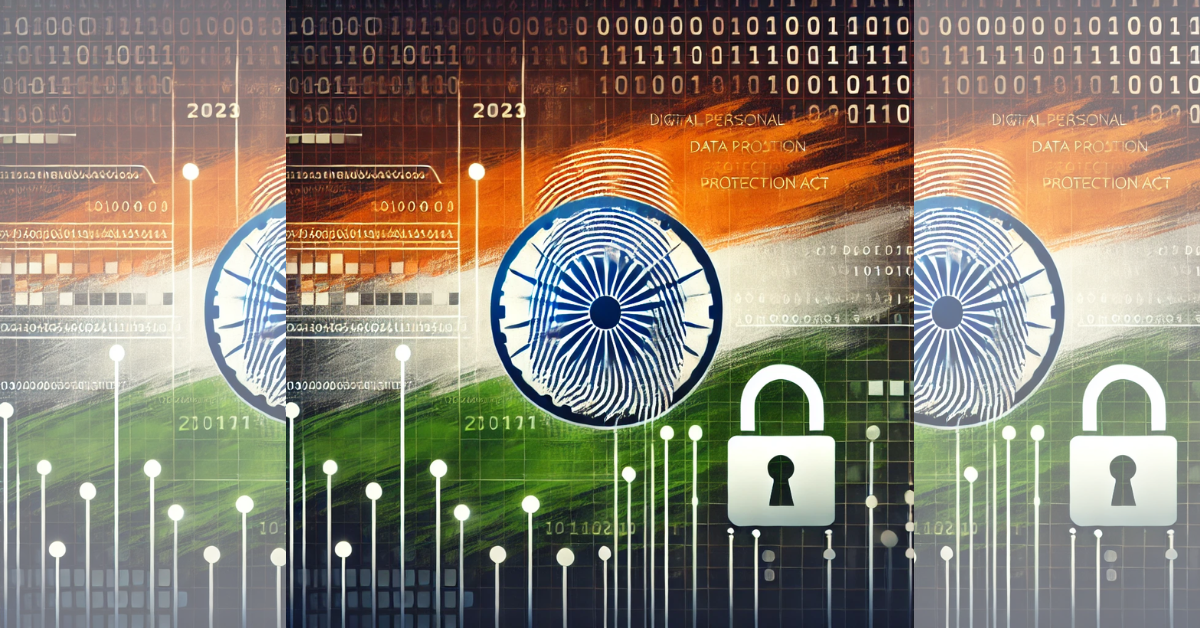In an era where data is the new oil, the Digital Personal Data Protection Act, 2023 (DPDPA 2023) marks a significant milestone in India’s journey toward data privacy and protection. With the rise of digital transactions, social media, and online services, the need for robust data security laws has never been greater.
This law aims to regulate the collection, storage, and processing of personal data while ensuring citizens’ right to privacy. But what does this mean for individuals and businesses? Let’s explore the key highlights, compliance requirements, and impact of this law.
📌 Overview of the Digital Personal Data Protection Act, 2023
| Key Aspect | Details |
|---|---|
| Law Name | Digital Personal Data Protection Act, 2023 (DPDPA 2023) |
| Passed By | Government of India |
| Effective From | Yet to be Notified |
| Purpose | Protection of personal data, regulating data processing, and ensuring privacy |
| Applies To | Individuals, Companies, Government Organizations handling personal data |
| Regulatory Authority | Data Protection Board of India |
| Penalties | Up to ₹250 Crore for Non-Compliance |
📌 This law applies to both Indian and foreign companies processing Indian citizens’ personal data.
🔑 Key Features of the Digital Personal Data Protection Act 2023
1️⃣ Consent-Based Data Processing
The Act emphasizes informed consent before collecting or processing personal data. Individuals must be informed about:
✔ Purpose of data collection
✔ Duration of data storage
✔ How their data will be used
📌 Users can withdraw consent anytime, ensuring better control over personal information.
2️⃣ Rights of Individuals (Data Principals)
The Act grants Indian citizens several rights over their data:
✔ Right to Access – Users can request a copy of their data
✔ Right to Correction – Individuals can correct/update their data
✔ Right to Erasure – Users can request data deletion
✔ Right to Grievance Redressal – Complaint mechanism for data misuse
📌 These rights empower individuals to control their personal information.
3️⃣ Obligations of Businesses (Data Fiduciaries)
Organizations collecting personal data must:
✔ Collect only necessary data
✔ Ensure secure data storage
✔ Delete data when no longer needed
✔ Appoint a Data Protection Officer (DPO) for compliance
📌 Failing to comply can result in heavy penalties up to ₹250 crore.
4️⃣ Exemptions for Government & Research Institutions
✔ The government can process personal data without consent for national security, law enforcement, and disaster response.
✔ Certain research and statistical studies are exempt from consent requirements.
📌 This exemption has raised concerns about potential misuse.
5️⃣ Data Breach & Penalties
✔ Companies must report data breaches within 72 hours.
✔ Heavy fines for non-compliance:
- ₹50 crore for minor violations
- ₹250 crore for major violations
📌 Strict penalties ensure organizations prioritize data security.
6️⃣ Data Transfer Rules
✔ Cross-border data transfer is allowed but only to approved countries.
✔ The government will publish a list of trusted countries for data sharing.
📌 This aims to balance global business operations with national security.
💼 Impact on Businesses & Organizations
The DPDPA 2023 significantly impacts companies handling user data. Businesses must:
✅ Update Privacy Policies: Clearly state how user data is collected, stored, and shared.
✅ Strengthen Cybersecurity Measures: Prevent data leaks and hacking incidents.
✅ Ensure Consent Management: Obtain explicit user consent before processing personal data.
✅ Hire Data Protection Officers (DPOs): Oversee compliance with data protection laws.
✅ Regular Compliance Audits: Avoid penalties by conducting routine data security checks.
📌 Businesses failing to comply may face reputational damage and legal actions.
🛡️ How Does This Law Protect Individual Privacy?
The DPDPA 2023 strengthens privacy rights through:
✔ Strict Data Collection Rules – No unnecessary personal data collection.
✔ User Control Over Data – Individuals can access, modify, or delete their data.
✔ Transparency & Accountability – Companies must clearly state why and how data is used.
✔ Legal Recourse for Data Misuse – Users can file complaints and seek compensation.
📌 This ensures greater control over personal information for Indian citizens.
📢 Challenges & Concerns with DPDPA 2023
Despite its benefits, the law has some concerns:
❌ Government Exemptions – Critics argue that allowing the government to collect data without consent may lead to privacy violations.
❌ Compliance Burden on Startups – Small businesses may struggle with the cost of implementing data protection measures.
❌ Unclear Data Storage Guidelines – Companies need more clarity on data retention policies.
❌ Limited Consumer Awareness – Many users may not fully understand their data rights.
📌 To address these challenges, awareness campaigns and clear regulations are essential.
📝 Steps to Ensure Compliance with DPDPA 2023
Organizations must prepare for compliance by following these steps:
✅ Conduct Data Audits – Identify how personal data is collected and stored.
✅ Appoint a Data Protection Officer (DPO) – Ensure internal compliance.
✅ Implement Consent Management – Use opt-in mechanisms for data collection.
✅ Secure Data Transfers – Use encryption and security measures.
✅ Train Employees – Educate staff on data protection laws.
📌 Companies must act now to avoid penalties and build user trust.
🌍 How Does India’s Law Compare to Global Data Protection Laws?
| Law | Country | Key Features |
|---|---|---|
| GDPR (General Data Protection Regulation) | European Union | Strictest privacy law with heavy fines |
| CCPA (California Consumer Privacy Act) | USA (California) | Gives users control over personal data |
| PDPA (Personal Data Protection Act) | Singapore | Data protection with strict business obligations |
| DPDPA 2023 | India | Balances user privacy with business flexibility |
📌 India’s law aligns with global standards while addressing national concerns.
🚀 Conclusion: A Step Forward for Digital Privacy in India
The Digital Personal Data Protection Act, 2023 is a landmark law that strengthens privacy rights and data security in India. While it provides greater control to individuals, businesses must comply with strict regulations to avoid penalties.
✅ For individuals: The law ensures more transparency, security, and control over personal data.
✅ For businesses: Companies must adopt privacy-first policies and invest in cybersecurity.
✅ For the government: The challenge is to implement fair regulations while ensuring national security.
📌 As India enters a new era of digital privacy, staying informed and compliant is the key to a secure digital future! 🚀

